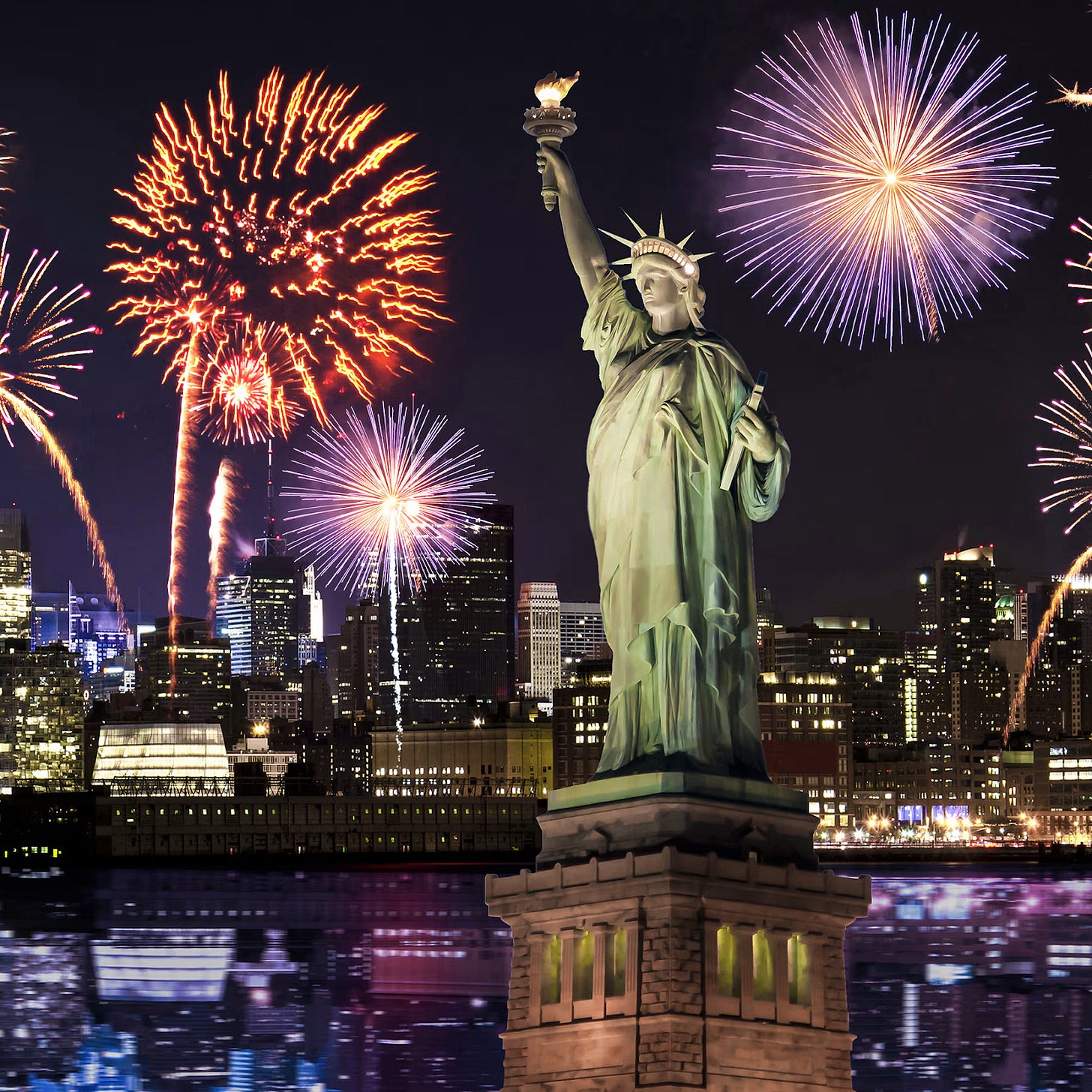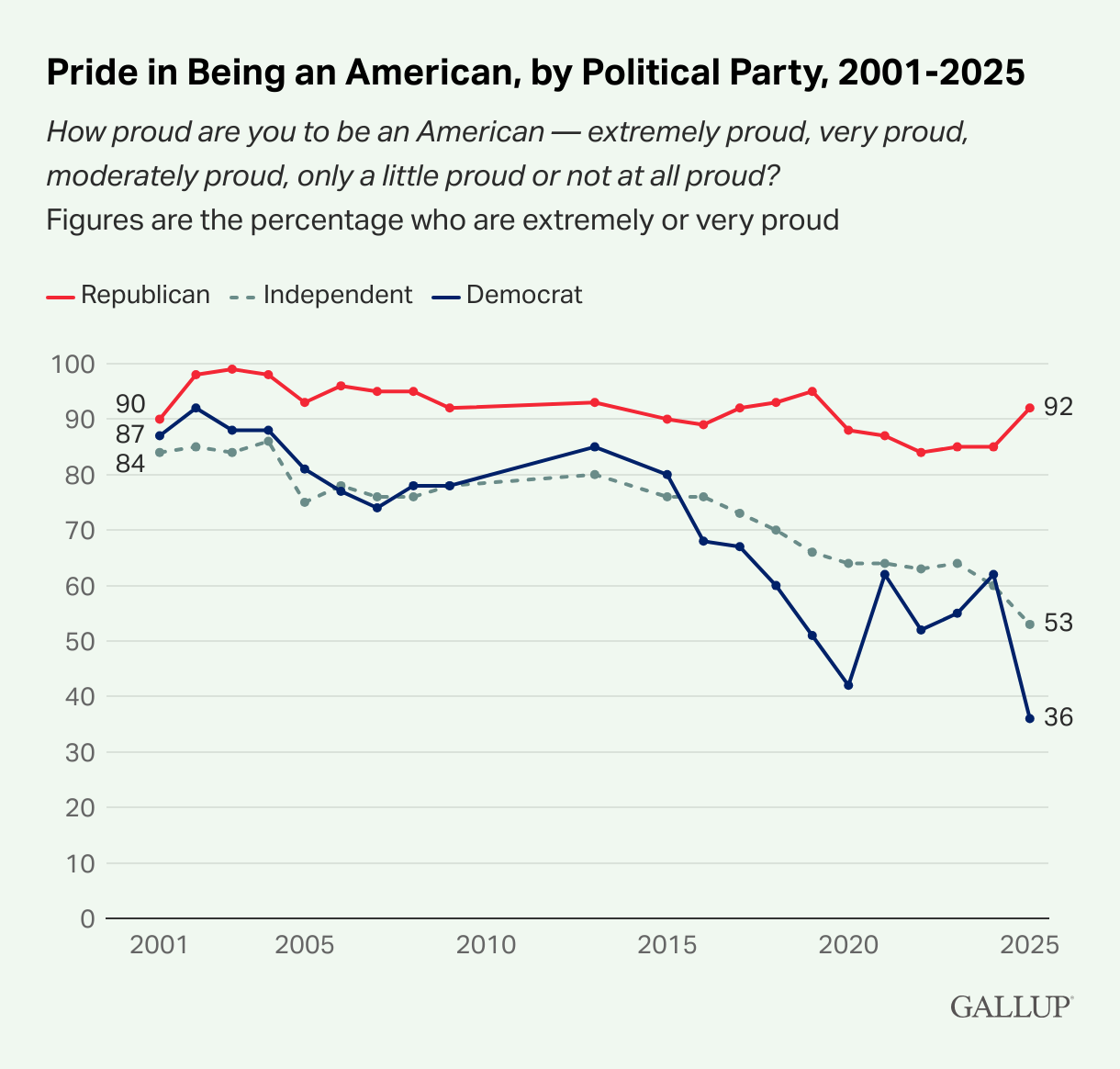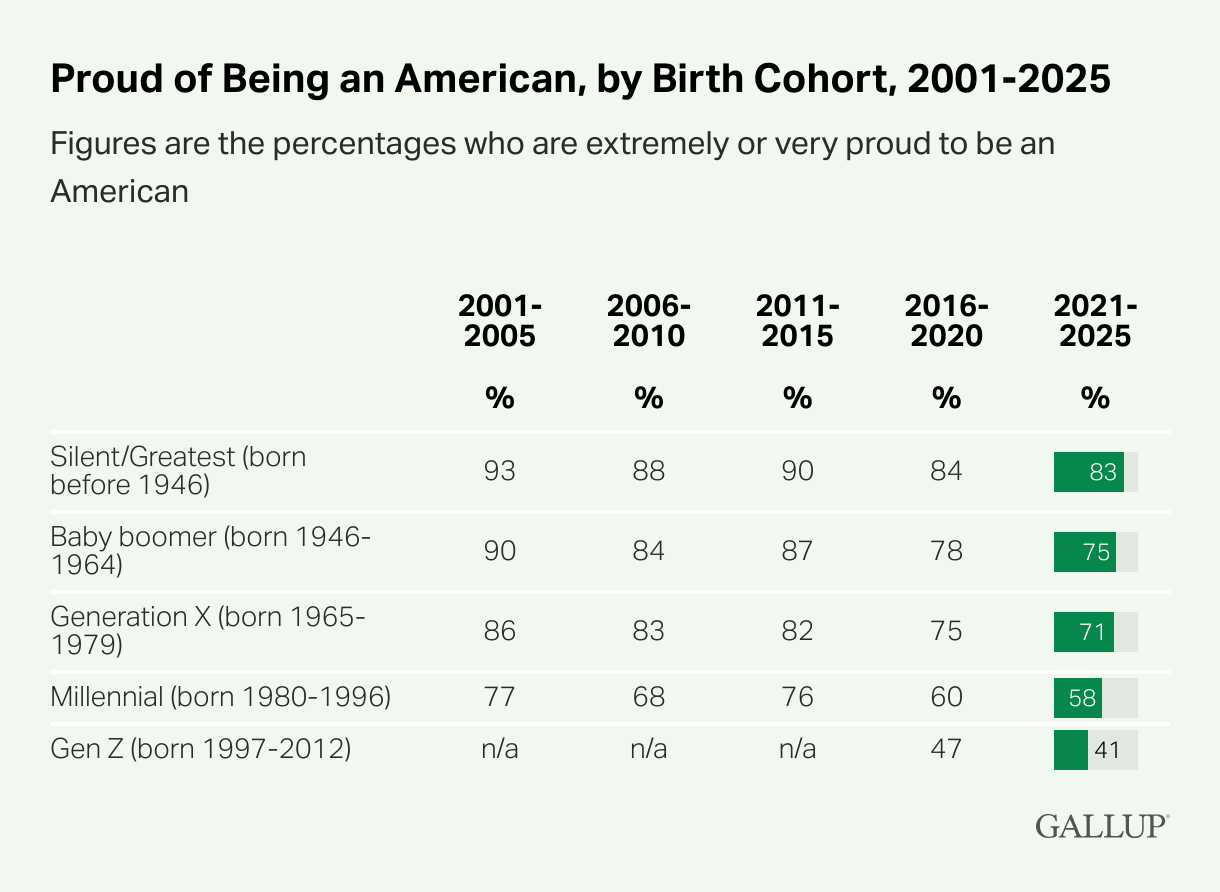Happy Birthday, America!
Why Progressives Should Celebrate the Fourth
When Thomas Jefferson scribbled his Enlightenment ideals onto parchment 249 years ago, he had no idea what would follow.
“We hold these truths to be self-evident…” has echoed in places Jefferson could never imagine. In Congress and at Gettysburg. In Palo Alto pitch meetings, Supreme Court arguments, immigrant stories, and protests from Selma to Tehran and Tiananmen.
From the dazzling declaration “...that all men are created equal; that they are endowed by their Creator with certain unalienable Rights, that among these are Life, Liberty, and the pursuit of Happiness,” emerged a chaotic and contradictory nation that continues to shape the world’s imagination.
These words led to the Constitution and the end of slavery, along with the creation of the Cheetos aisle at Walmart. They led to Shiloh, Omaha Beach, and the railroads, as well as to Big Macs, jet planes, and Bitcoin. They inspired Lincoln, as well as both Roosevelts and Barack Obama. They attracted freedom lovers who brought to our shores a cacophony of languages, stories, and cuisines.
Jefferson could not imagine a country that produced both jazz and blues, the Marshall Plan and Thurgood Marshall, a $400 billion fast-food industry, and a $100 billion weight loss industry. America is a hot and glorious mess – and it makes our lives possible.
Democrats Need Progressive Patriotism
Celebrating America or the values voiced in the Declaration of Independence makes many progressives uncomfortable. In California, the bluer the precinct, the fewer the flags on the Fourth of July. In these leafy neighborhoods, visible displays of patriotism are viewed as vaguely reactionary.
Gallup polls bear this out. At the beginning of the 21st century, adults were almost unanimously proud to be Americans. However, a combination of political and generational shifts has eroded national unity over the past 25 years. When Gallup first asked Americans how proud they were in 2001, 87% declared themselves extremely or very proud of the US. This number remained above 80% until 2017, the year Donald Trump first became president. That year, only 75% said they were extremely or very proud – and the number has fallen since then.
Democrats are almost entirely responsible for the decline in US pride. This year, only 36% of Democrats declared themselves extremely or very proud, down from 62% the previous year. This is only the second time Democrats’ pride has fallen below 50%. It also happened in 2020, the last year of the first Trump administration, during the early stages of the pandemic and shortly after Minneapolis police officers murdered George Floyd. Political independents have followed a similar trajectory, whereas Republicans' level of national pride has remained above 90%, even when a Democratic president was in office.
Young people are less patriotic. Each generation since World War II has been significantly less likely than the previous one to say they are extremely or very proud to be an American. Millennials (born 1980-1996) and Gen Z (born after 1996) are the most distinct. From 2021 to 2025, only 41% of Gen Z adults reported being extremely or very proud to be American. Among Gen Z Democrats, only 24% were proud.
Patriotism and the Progressive Paradox
These views place progressives in a bind. They want to change American policies, power structures, and priorities without believing in the country itself. That’s not just a political problem – it’s a moral one.
Plainly, America has earned plenty of criticism. Its founding was soaked in contradiction. It has brutalized, excluded, and abandoned millions of its own people. But confronting those truths is not a weakness of the American project – it’s the project.
It is far more radical to reclaim patriotism than to abandon it. The most insightful arguments in this vein come from a growing cohort of heterodox liberals, such as Noah Smith of Noahpinion or the writers at The Liberal Patriot. They argue that if progressives want to build a more just country, they need to speak to American patriotic ideals. That idea of America doesn’t need to be mythic – it just needs to be durable. And it is.
Properly understood and applied, patriotism is a force multiplier for political change. Americans are more likely to support universal healthcare, public investment, or affordable housing if they believe it makes the country stronger, more secure, and more itself. Progressives understand this when discussing the New Deal or the Civil Rights Movement, but often forget it when talking about the present.
The left is, perhaps by nature, always tempted to emphasize what America has failed to be. That’s a losing frame. “We are a failed state” is not a mobilizing slogan. It’s an excuse for disengagement. Bill Clinton had the right approach when he declared, “There is nothing wrong with America that cannot be cured by what is right with America.”
Clinton understood that the American experiment has always been a struggle between what the country is and what it claims to be. America changed in large part because of people who mobilized to hold America to its word that all people are created equal and endowed with rights enshrined in the Constitution. Progressive change depends on a belief in the system’s capacity to live up to its ideals. If those ideals are written off as lies—or worse, as imperialist cover stories—then there is nothing left to fight for but power and its redistribution.
The writers at The Liberal Patriot argue that progressives lose elections because they’ve lost touch with national identity and instead frame messages in the language of grievance or oppressed groups. The center-left once spoke in terms that included race and class within a shared American story. Franklin Roosevelt, Lyndon Johnson, and Barack Obama didn’t cede the flag – they redefined it. These were not cynics who had given up on their country to sound righteous on Twitter; they were progressives who had the support to get things done because they proudly loved their country.
The stakes are global. China is betting on technocratic authoritarianism. Russia is betting on ethnic revanchism. Both happily undermine American patriotism. But the rest of the world needs the American story to work. If America can’t show that a multiethnic democracy can hold together—economically, culturally, morally—then liberalism loses its best proof point.
So yes, we should teach the real history of slavery. We should hold the police accountable. We should fight racial discrimination. But we need to do it as patriots who invite people to join rather than push them away. Americans want to take pride in their country and will follow leaders with a vision of America worth being proud of. That vision needs to be progressive, or it can be captured by those who do not believe in democracy at all.
Can progressives stop seeing patriotism as a concession to the right and start seeing it as a resource for the future? Can they build a politics that’s not just oppositional but aspirational? Can they love this country, not because it’s perfect, but because it’s theirs?
Si, se puede. Yes, it can be done. Happy Fourth.





Well said, Marty. Happy 4th!
Very good provocative analysis. The distinction between Progressives and Democrats is not clear in the discussion. Or is there one? Are they synonyms or are progressives a subcategory?